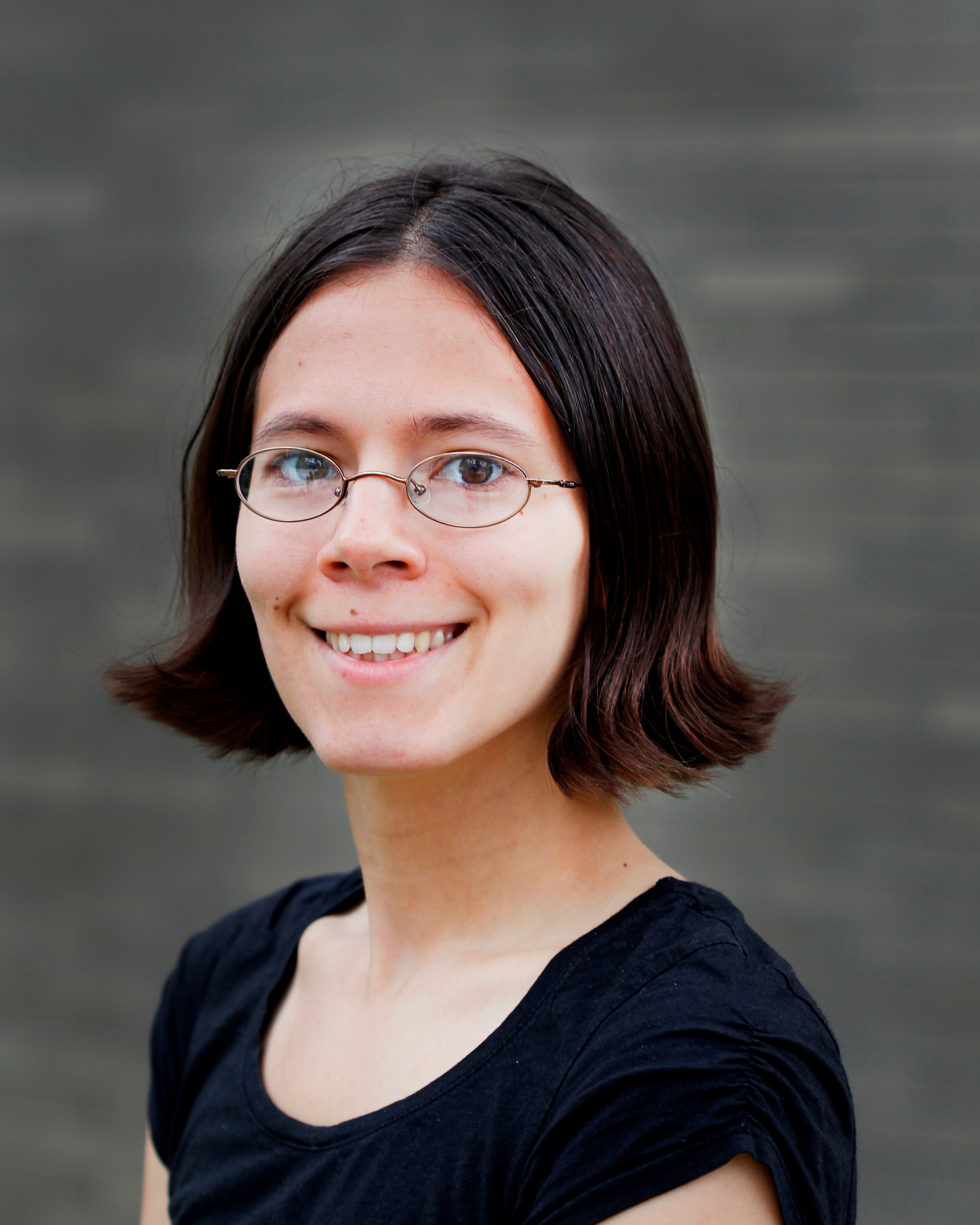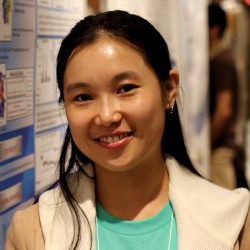 By Katharine Sedivy-Haley, PhD Candidate, Hancock Lab
By Katharine Sedivy-Haley, PhD Candidate, Hancock Lab
The Michael Smith Foundation for Health Research (MSFHR) was established in honour of BC’s first Nobel Laureate Dr. Michael Smith, with the mission to support health research in BC and develop and attract research talent. The Foundation offers highly competitive awards to support early-career researchers in the areas of biomedical, clinical, health services, and population health research. In 2018, 5 CBR Post-Doctoral Trainees and CBR Principal Investigator Dr. Hugh Kim were recognized by the MSFHR with research awards.
 Dr. Emily Park in the Ma Lab is developing a diagnostic tool for assessing the invasiveness of cancers. When tumour cells disperse, they do so via chemotaxis, migrating in response to local chemical signals. However, current assays for assessing chemotaxis – and thus invasiveness – are highly variable due to instability of chemical gradients used. Further, existing assays use a large number of cells, requiring an invasive biopsy. Dr. Park is working on a microfluidic platform which would generate a stable gradient suitable for testing a smaller number of cells, such as can be obtained from a less invasive needle biopsy. This tool would be useful in guiding the course of chemotherapy, since tumour cells with different levels of invasiveness might respond differently to treatment.
Dr. Emily Park in the Ma Lab is developing a diagnostic tool for assessing the invasiveness of cancers. When tumour cells disperse, they do so via chemotaxis, migrating in response to local chemical signals. However, current assays for assessing chemotaxis – and thus invasiveness – are highly variable due to instability of chemical gradients used. Further, existing assays use a large number of cells, requiring an invasive biopsy. Dr. Park is working on a microfluidic platform which would generate a stable gradient suitable for testing a smaller number of cells, such as can be obtained from a less invasive needle biopsy. This tool would be useful in guiding the course of chemotherapy, since tumour cells with different levels of invasiveness might respond differently to treatment.
Dr. Jane Ru Choi (also in the Ma lab) is developing a method to isolate circulating tumour cells (CTCs). Genome sequencing of individual CTCs would be of great use to evaluate cancer status  and treatment efficacy, and identify potential mutations and cancer subtypes within a heterogeneous tumour. However, the task has remained challenging due to the extreme rarity of CTCs. Existing methods for isolating single cells are time consuming and require precise manipulation, leading to undesirable cell loss. Therefore, there is a strong need for technologies that can efficiently capture such rare cells for downstream single cell sequencing. Dr. Choi is developing a method to rapidly capture and select single CTCs within a hydrogel matrix based on their phenotypic profile while eliminating cell loss. This improved method would enable better cancer monitoring and guide personalized therapy.
and treatment efficacy, and identify potential mutations and cancer subtypes within a heterogeneous tumour. However, the task has remained challenging due to the extreme rarity of CTCs. Existing methods for isolating single cells are time consuming and require precise manipulation, leading to undesirable cell loss. Therefore, there is a strong need for technologies that can efficiently capture such rare cells for downstream single cell sequencing. Dr. Choi is developing a method to rapidly capture and select single CTCs within a hydrogel matrix based on their phenotypic profile while eliminating cell loss. This improved method would enable better cancer monitoring and guide personalized therapy.
 Dr. Yoan Machado in the Overall Lab is studying the role of proteases in allergic responses. Proteases, or enzymes that cut other proteins, are known to be major triggers of allergic TH2 responses, capable of acting as allergens themselves or acting as adjuvants to strengthen the allergic response towards other allergens. The proteolytic or cutting activity is required for proteases to trigger the allergic response. Therefore, Dr. Machado is using “degradomics” to identify cut ends of proteins that may be involved in the allergic response by participating in signalling cascades in antigen presenting cells or by acting as danger signals to alert the immune system.
Dr. Yoan Machado in the Overall Lab is studying the role of proteases in allergic responses. Proteases, or enzymes that cut other proteins, are known to be major triggers of allergic TH2 responses, capable of acting as allergens themselves or acting as adjuvants to strengthen the allergic response towards other allergens. The proteolytic or cutting activity is required for proteases to trigger the allergic response. Therefore, Dr. Machado is using “degradomics” to identify cut ends of proteins that may be involved in the allergic response by participating in signalling cascades in antigen presenting cells or by acting as danger signals to alert the immune system.
Dr. Ka-Yee (Grace) Choi of the Hancock lab is studying host defense peptides (HDPs) and their synthetic analogues, innate defense regulator or IDR peptides. These molecules  have immunomodulatory properties: they improve the body’s ability to fight infections rather than simply attacking bacteria directly. This indirect action makes it more difficult for bacteria to develop resistance towards the peptides. Dr. Choi says that her goal “is to understand the biological effects of HDPs and IDR peptides on both the host and bacteria during chronic infections, in order to identify the potential use of these peptides as alternative therapies against antibiotic resistant bacteria.” Antibiotic resistance is a global problem, and as multidrug-resistant organisms proliferate, common infections and routine surgeries will become increasingly life-threatening.
have immunomodulatory properties: they improve the body’s ability to fight infections rather than simply attacking bacteria directly. This indirect action makes it more difficult for bacteria to develop resistance towards the peptides. Dr. Choi says that her goal “is to understand the biological effects of HDPs and IDR peptides on both the host and bacteria during chronic infections, in order to identify the potential use of these peptides as alternative therapies against antibiotic resistant bacteria.” Antibiotic resistance is a global problem, and as multidrug-resistant organisms proliferate, common infections and routine surgeries will become increasingly life-threatening.
 Dr. Daniel Pletzer (also in the Hancock lab) is studying the use of IDR peptides to fight antibiotic resistant bacteria that have gathered into high-density communities known as biofilms. Biofilms are difficult to treat and account for two thirds of clinical infections. Dr. Pletzer and others have recently shown that IDR peptides work synergistically with antibiotics when treating mouse bacterial abcesses caused by all six ESKAPE pathogens, which account for 60% of hospital infections. His research continues to investigate the mechanisms of action of these peptides and their interaction with antibiotic treatments. Dr. Pletzer believes “it is important to test novel drugs against high-density infections to identify their real therapeutic potential.”
Dr. Daniel Pletzer (also in the Hancock lab) is studying the use of IDR peptides to fight antibiotic resistant bacteria that have gathered into high-density communities known as biofilms. Biofilms are difficult to treat and account for two thirds of clinical infections. Dr. Pletzer and others have recently shown that IDR peptides work synergistically with antibiotics when treating mouse bacterial abcesses caused by all six ESKAPE pathogens, which account for 60% of hospital infections. His research continues to investigate the mechanisms of action of these peptides and their interaction with antibiotic treatments. Dr. Pletzer believes “it is important to test novel drugs against high-density infections to identify their real therapeutic potential.”
Finally, Dr. Hugh Kim, who received a MSFHR Scholar Award, is studying the role of platelets in chronic inflammatory diseases such as periodontal (gum) disease. During chronic  inflammation, the dysregulation of cytokine signaling can lead to tissue damage and loss of function. Platelets have recently been discovered to be critical elements of this process, although their exact role in chronic inflammation is not well understood. Dr. Kim’s work will attempt to clarify how cytokines are released from platelets during inflammation; this work has implications for the rational treatment of many chronic diseases, including periodontal disease.
inflammation, the dysregulation of cytokine signaling can lead to tissue damage and loss of function. Platelets have recently been discovered to be critical elements of this process, although their exact role in chronic inflammation is not well understood. Dr. Kim’s work will attempt to clarify how cytokines are released from platelets during inflammation; this work has implications for the rational treatment of many chronic diseases, including periodontal disease.


